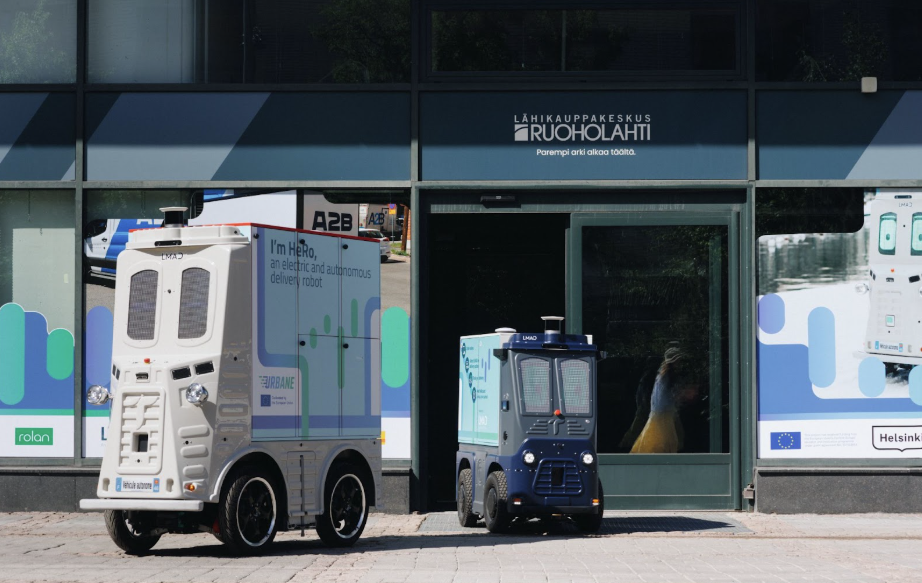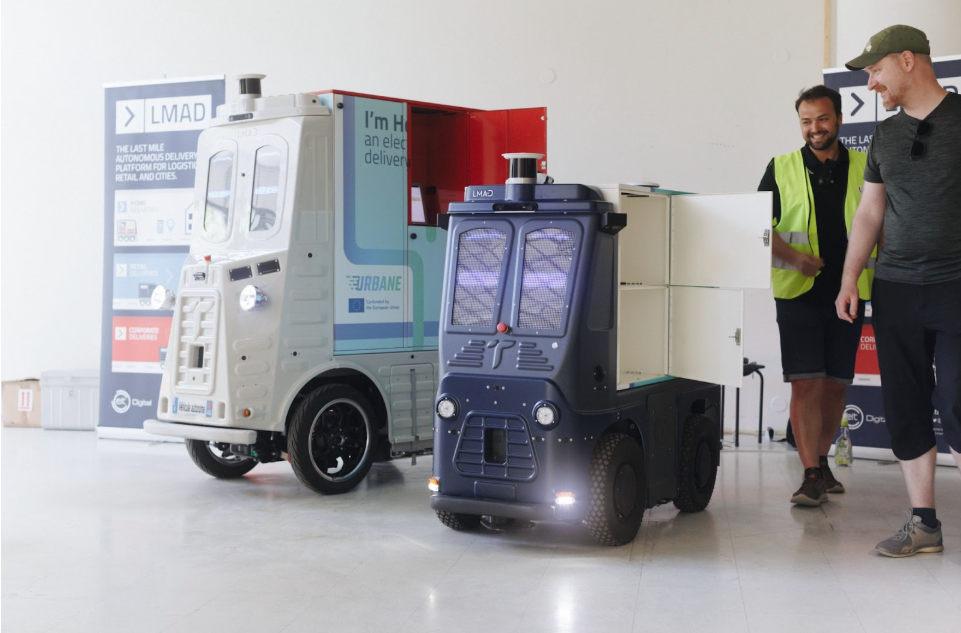Helsinki, Finland
Innovation focus and new services
Autonomous Delivery Vehicles (ADVs) assisted operations.
Helsinki has ambitious carbon neutrality goals, while traffic is the biggest source of emissions. Logistics operators are producing a vast proportion of the traffic, which means that decarbonising urban logistics has a direct impact on meeting the sustainability goals of Helsinki.

Context and challenges
The biggest challenges encountered during the operations in Helsinki were finding a suitable location, harsh winter conditions leading to technical issues, designing a viable use case, and increasing the volume. Finding the location was difficult due to the permit process issues within the city. Eventually, renting the private property was the starting point of the third sprint. From the winter’s perspective, the heavy snowfall was impacting the lidar-cameras in the ADV, and the cold temperatures broke two of the motors in the ADV. However, the ADV was functioning better than expected in winter conditions. The viability of the use case is dependent on the end-users, which means that the first sprint could have taken into consideration the requirements and needs of the construction workers when choosing to deliver the tools for them. Lastly, the volume-related issues were since people need more time to find and adopt novel services. The customer journey could be streamlined, and the users better informed regarding the new service available.
Objectives and ambitions
The three objectives of Helsinki operations are as follows: Piloting innovative and sustainable modes of multimodal last-mile deliveries. Testing B2B and B2C deliveries with a range of goods and an ADV in different areas. Testing the concept of consolidation microhub in the city with a range of innovative last-mile delivery options for the B2B and B2C deliveries in densely populated areas while collecting valuable data for modelling activities.
Innovations
Helsinki Living Lab demonstrated innovative ways to decarbonize multimodal urban logistics, reduced the number of kilometers driven by combustion engine vans, provided better services for the residents, and evaluated ADVs’ potential as a viable part of future last-mile logistics in 3 iteratively designed pilot sprints between 2023-2024.
Helsinki tested two ADVs with three different types of modules, one with a shelf and two with a PIN-code system, from which the other had 6 lockers and the other had 25. In addition, the third sprint introduced a consolidation microhub inside a shopping centre of Ruoholahti. The microhub included the two ADVs with PIN-code locker systems offering pre-determined pick-up locations and 1-hour timeslots, two cargo bikes from Schenker and A2B, and a manned service point by DHL Express.
To be able to meet the objectives, the physical infrastructure, like a microhub, and the digital infrastructure, like integrations between LMAD and Schenker, plus the blockchain and digital twin implementation, were taking place. In addition, the iterative design of all activities was a very crucial aspect that set Helsinki apart from other wave 1 living labs. Agile meetings, such as retrospective after each sprint, to gather feedback and redesign the next sprint based on the feedback, were very important for the success of the operations.
Results and state of affairs
During the operations, CO2 emission reduction was achieved due to the usage of renewable energy for charging robots and cargo bikes. Also, the ADVs replacing the vans meant fewer kilometers driven with combustion engine vans in the center. Designing the operations user-centered manner led to better quality last-mile services for residents in Helsinki, which was measured using interviews and a customer satisfaction study. In addition, the successful implementation of blockchain technology, smart contracts, and digital twins provided us with more transparency, trust between different logistics service providers, and data to be presented to the city decision-makers. Forum Virium Helsinki, acting as the intermediary, will utilise this data to promote decarbonisation of urban logistics in Helsinki.
Partners involved
URBANE operations in Helsinki were coordinated by Forum Virium Helsinki, the non-profit innovation organization owned by the city of Helsinki, while the city was supporting. Schenker, LMAD and TwinswHeel were official partners. In addition, Würth, the EU Horizon-funded DISCO project’s partner A2B, and DHL Express were also supporting the operations as external partners.
